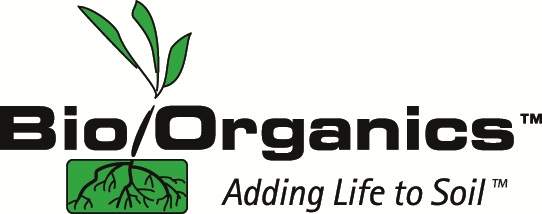The use of organic techniques to grow plants sometimes seems like it's a new idea, at least to those who are too young to remember when there were no other options. Nearly every home used to have a big vegetable garden and farms relied heavily on livestock manures (usually produced nearby or onsite).
This all began to change after WW2, when synthetic petrofertilizers began to be promoted by the large chemical companies who needed a new market for their wartime production facilities. Farmers welcomed the convenience of synthetic fertilizers and home gardeners soon copied this "modern" growing method. Later, as farms consolidated into mega-acreage agri-businesses, the pattern of every small farm having dairy, meat, and egg animals (manure sources) began to dwindle and full-chemistry ag became the norm for much of the country.
At one level, this chemical approach to growing plants does work. Plants can be forced into high yields, at least for several years. Whether this can be maintained forever is debatable. Many farmers believe that as long as macro nutrients (NPK, plus sometimes a few minor elements) are reapplied to soil every year, they are "putting back what the plants take out" and this can be done indefinitely. Others disagree, arguing that humic and trace elements, organic matter, and bio-life such as earthworms, beneficial fungi and bacteria are important to long-term soil health, and if these are depleted or destroyed soils will eventually not support plant life.
This debate will go on, but let's focus on the farms, market growers, landscapers, and gardeners who want to grow healthy plants using all-or-mostly-organic methods. This has become much easier in recent years, due to many natural-ingredient fertilizers and pesticide products becoming available. If local stores do not have a good selection, request the thick and free Peaceful Valley catalog for dozens of reasonably-priced mail-order choices - www.groworganic.com )
An often overlooked part of successful organic growing are the plant varieties themselves. My own observations and garden tests over many years suggest that some older varieties are far more responsive to biological soil partnerships. I often see that new varieties do not perform all that well in old-fashioned soils filled with organic matter and biological organisms. This is not to say that the latest hybrids won't grow OK in such soils, but they usually do not show as strong a response as do the heirloom or early-hybrid types. My theory is that much of the dependency on biological partnerships have been bred out of newer-variety root systems, and they may require stronger synthetic fertilizer to be fully productive.
If this is true, those growers who want the best-possible results or profits from organic methods should be trying older varieties that were selected over decades of excellent performance in farms and gardens before the all-chemical era. Many of these traditional varieties are still on the market and widely available. I personally look for both great yields and flavors for my personal selections, along with natural disease resistance. I see no reason to compromise on any of these characteristics when there are so many variety options available.
The basics for organic success are fairly well established: Fortify the soil with organic matter (ideally fully-finished compost) and broad-spectrum minerals, adjust the pH if too far outside ideal range, introduce mycorrhizal fungi spores, apply gradual-release low-analysis fertilizer, and keep bare soil covered with mulch (use any available organic material that will slowly decompose and provide feed for worms).
But also do some comparison plantings. If your organic soil experience is like mine, you may discover that some older varieties, especially those that were popular in your part of the country 50 years ago, will thrive and outperform the newer bred-for-synthetic-fertilizing types. I'd expect you will also like the flavors better.
Good growing, my friends,
Don Chapman
President
BioOrganics
